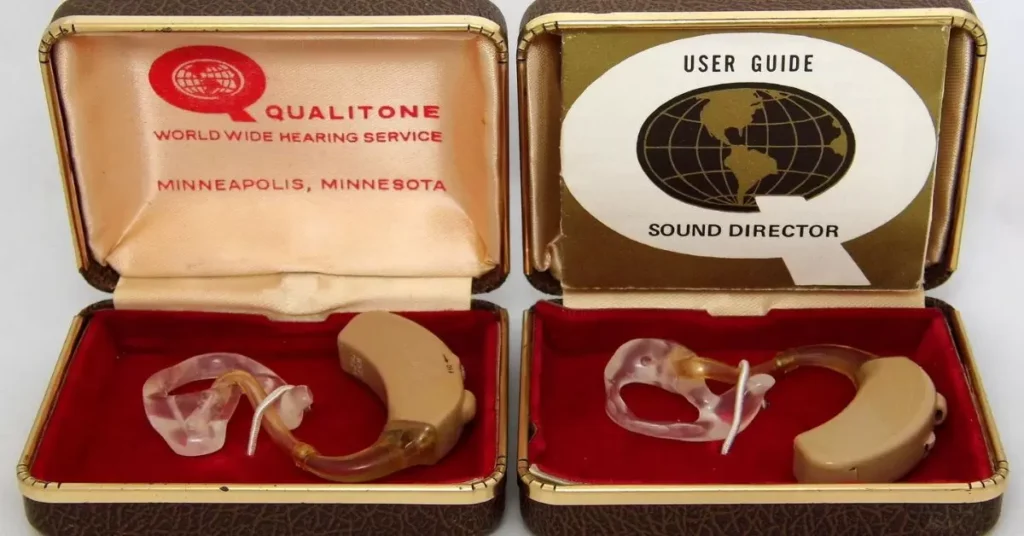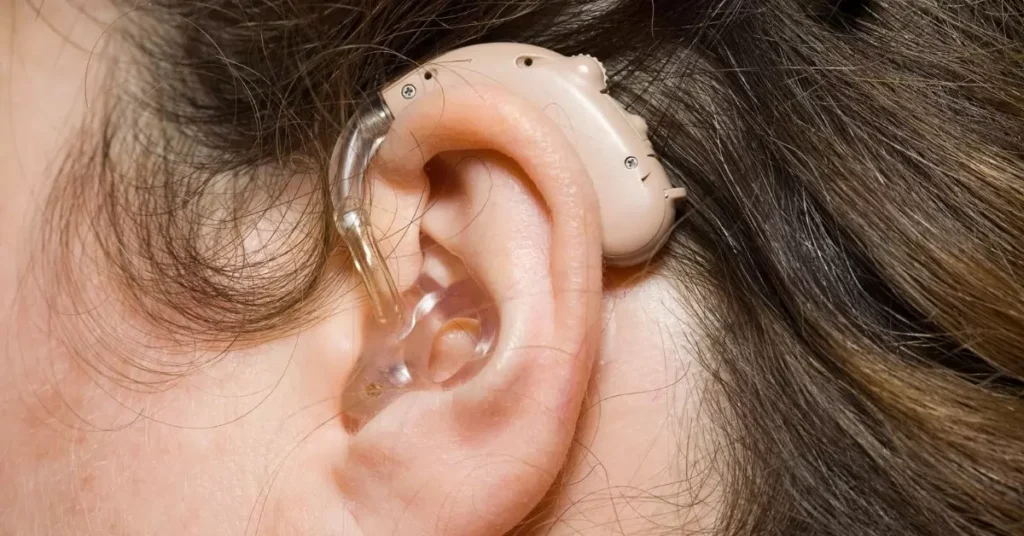Hearing loss is a prevalent issue in the United States, affecting approximately 48 million Americans. As we age, the likelihood of experiencing some degree of hearing impairment increases significantly.
While hearing aids can provide an effective solution, the costs associated with these devices can be prohibitive, especially without adequate insurance coverage. In this comprehensive guide, we’ll explore the extent to which BlueCross BlueShield plans cover hearing aids and related services, empowering you to make informed decisions about your hearing care.
Understanding BlueCross BlueShield’s Hearing Aid Coverage
BlueCross BlueShield (BCBS) is a nationwide federation of independent health insurance companies that offer a range of plans, including those tailored for Medicare beneficiaries. While the original Medicare plan (Parts A and B) does not cover routine hearing exams or hearing aids, many BCBS supplemental plans provide varying levels of coverage for these essential services.
It’s important to note that the specifics of hearing aid coverage can differ significantly between BCBS plans, as well as across different states. Some plans may offer comprehensive benefits, while others may have more limited coverage or exclude hearing aids altogether.
Types of BCBS Plans That May Cover Hearing Aids

Medicare Advantage (Part C) Plans
Medicare Advantage plans, also known as Part C plans, are an alternative to original Medicare offered by private insurance companies like BCBS. Many Medicare Advantage plans include hearing aid benefits as an added extra, providing coverage for routine hearing exams, fittings, and the devices themselves.
However, the extent of coverage can vary widely between different Medicare Advantage plans. Some plans may cover a significant portion of the cost, while others may only offer a fixed annual allowance or require higher out-of-pocket costs through copays or coinsurance.
Medicare Supplement (Medigap) Plans
Medigap plans, offered by private insurers like BCBS, are designed to supplement original Medicare coverage by filling in the gaps for out-of-pocket expenses. Certain Medigap plans, such as Plan C and Plan F, may cover basic hearing services and hearing aids, although they typically do not provide full coverage for prescription hearing aids.
It’s essential to review the specific details of your Medigap plan, as the level of hearing aid coverage can vary significantly between different plan types.
Individual/Family BCBS Health Insurance Plans
For individuals and families not covered by Medicare, the extent of hearing aid coverage under BCBS health insurance plans is largely determined by state regulations. Some states have robust mandates requiring health plans to provide comprehensive coverage for hearing aids, while other states have more limited or no coverage requirements.
For example, in Arkansas, state law mandates that individual and group health plans cover a portion of the costs for hearing aids and related services, subject to certain limitations and copays. However, in states with less stringent regulations, hearing aid coverage may be minimal or nonexistent under individual BCBS plans.
Typical Hearing Aid Coverage Provisions
While the specific details of hearing aid coverage can vary between BCBS plans, there are some common provisions and limitations you may encounter:
- Annual Benefit Limits: Many plans impose an annual maximum benefit limit for hearing aid expenses, typically ranging from $1,000 to $3,000 per ear. Once this limit is reached, you would be responsible for covering any additional costs out-of-pocket.
- Copays or Coinsurance Requirements: Even with coverage, you may be required to pay a copay (a fixed dollar amount) or coinsurance (a percentage of the total cost) for hearing aids and related services.
- Replacement Schedule Allowances: Most plans will only cover the cost of new hearing aids once every few years, typically every 3 to 5 years. This timeline may not align with the recommended replacement schedule for optimal hearing aid performance.
- In-Network Provider Requirements: To maximize your coverage, you may need to use hearing care providers and audiologists within the BCBS network. Services obtained from out-of-network providers may be subject to higher out-of-pocket costs or limited coverage.
It’s crucial to review the specific details of your BCBS plan, as well as any applicable state mandates, to understand the exact provisions and limitations regarding hearing aid coverage.
Maximizing Your BCBS Hearing Aid Benefits

If your BCBS plan does provide some level of hearing aid coverage, there are several strategies you can employ to maximize your benefits:
- Review Your Plan Details: Carefully review the details of your specific BCBS plan, including the Summary of Benefits and Coverage (SBC) document. This will outline the exact coverage provisions for hearing aids, such as annual benefit limits, copays, and in-network provider requirements.
- Utilize a Health Savings Account (HSA): If your BCBS plan is eligible for an HSA, you can contribute pre-tax dollars to this account and use the funds to pay for qualified out-of-pocket hearing aid expenses not covered by your insurance.
- Take Advantage of Added Value Programs: Many BCBS plans offer added value programs or discounts through partnerships with hearing aid manufacturers or providers. These programs can provide additional savings or discounts on hearing aids and related services.
- Explore Local Nonprofit Organizations: Depending on your location, there may be local nonprofit organizations or charitable programs that assist individuals with the costs of hearing aids and related services. These resources can be invaluable for those facing financial challenges.
- Consider State-Mandated Coverage: If you live in a state with robust hearing aid coverage mandates, ensure that your BCBS plan complies with these regulations. In some cases, you may need to advocate for your rights or file an appeal if your plan does not meet the state’s coverage requirements.
When is Paying Out-of-Pocket Worth It?

In some cases, even with BCBS insurance coverage, the out-of-pocket costs associated with hearing aids may still be substantial. It’s important to consider whether utilizing your BCBS benefits is truly worthwhile or if paying out-of-pocket for hearing aids may be a more cost-effective solution.
Here’s an example cost-benefit analysis to illustrate this:
Let’s assume your BCBS plan covers up to $2,000 per ear for hearing aids, but you need to pay a 30% coinsurance. If the total cost of the hearing aids you require is $5,000 per ear, your out-of-pocket expenses would be:
- $3,000 (cost after the $2,000 coverage limit)
- Plus 30% coinsurance on the remaining $3,000 = $900
- Total out-of-pocket cost = $3,900 per ear
In this scenario, paying out-of-pocket may be more affordable than utilizing your BCBS coverage if you can find high-quality hearing aids at a lower cost elsewhere. Many reputable providers and online retailers offer competitive pricing, potentially making it more economical to bypass insurance altogether.
Additionally, if your BCBS plan has very limited hearing aid coverage or excludes these devices entirely, paying out-of-pocket may be your only option. In such cases, exploring alternative financing options, negotiating discounts, or seeking assistance from nonprofit organizations can help make hearing aids more accessible and affordable.
It’s essential to weigh the costs and benefits of using your BCBS coverage versus paying out-of-pocket, considering factors such as the quality of the hearing aids, long-term costs, and your overall budget.
Conclusion
Navigating the complexities of hearing aid coverage under BlueCross BlueShield plans can be challenging, as the specifics can vary significantly between different plan types and across states. While some BCBS plans offer comprehensive coverage for hearing aids and related services, others may have more limited benefits or exclude these devices altogether.
To ensure you make the most informed decision regarding your hearing care, it’s crucial to review the details of your specific BCBS plan, understanding the annual benefit limits, copay or coinsurance requirements, in-network provider stipulations, and any applicable state coverage mandates.
If your BCBS plan provides insufficient coverage or the out-of-pocket costs remain prohibitive, explore alternative options such as paying out-of-pocket, negotiating discounts with providers, or seeking assistance from local nonprofit organizations.
Ultimately, prioritizing your hearing health is essential, as untreated hearing loss can have far-reaching impacts on your overall well-being, cognitive function, and quality of life. By understanding your insurance coverage options and being proactive in seeking appropriate treatment, you can embark on a journey towards better hearing and improved communication with your loved ones and the world around you.
Remember, the key to finding the right hearing aid solution lies in conducting thorough research, consulting with professionals, and carefully evaluating the costs and benefits of each available option. With the right approach, you can make an informed decision that aligns with your specific needs and financial circumstances.
As the founder of TrustArmorInsurance, [Admin] the site in 2024 to offer reliable insurance solutions with a focus on trust and security. With a commitment to providing top-notch coverage and personalized service, TrustArmorInsurance aims to meet diverse needs with integrity and professionalism.











